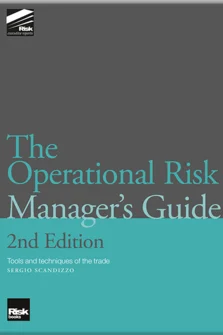Epilogue: Operational Risk Management in the Year 2020
Introduction: The Management of Risk Management
Prologue: The Job Interview
A Day in the Life
The Operational Risk Function
Risk Management for Beginners: The Operational Risk Policy
Risk Identification
Risk Assessment and Capital Allocation
Scenario Analysis
AMA: An Advanced Approach to Risk Measurement
Reporting
The New Product Approval Process
The Management of Extreme Risks
Financial and Other Disasters
Epilogue: Operational Risk Management in the Year 2020
We have looked so far at what operational risk management is about in banking and following the financial crisis, its motivations, tools, techniques and objectives, as well as some of the drawbacks and inconsistencies that come from business practice, regulation, management culture and human nature. We have also looked at the role played by operational failures during the crisis and at how operational risk functions could add value in a more focused risk-management framework. But will it be any different 10 years from now? Will this profession evolve and thrive as an essential player in global corporate governance, or will it progressively lose relevance as Basel II evolves and concentrates on capital, liquidity and compensation issues, budgets quietly disappear, staff shrinks and all that are left are reports full of numbers that are duly read and immediately set aside? Will we see operational risk functions as the guardians of the best risk management practices across the organisation, as they have emerged from regulatory recommendations in the aftermath of the crisis (Senior Supervisors Group 2009)?11. There is, of course, no official birthdate for modern financial risk
Copyright Infopro Digital Limited. All rights reserved.
As outlined in our terms and conditions, https://www.infopro-digital.com/terms-and-conditions/subscriptions/ (point 2.4), printing is limited to a single copy.
If you would like to purchase additional rights please email info@risk.net
Copyright Infopro Digital Limited. All rights reserved.
You may share this content using our article tools. As outlined in our terms and conditions, https://www.infopro-digital.com/terms-and-conditions/subscriptions/ (clause 2.4), an Authorised User may only make one copy of the materials for their own personal use. You must also comply with the restrictions in clause 2.5.
If you would like to purchase additional rights please email info@risk.net











